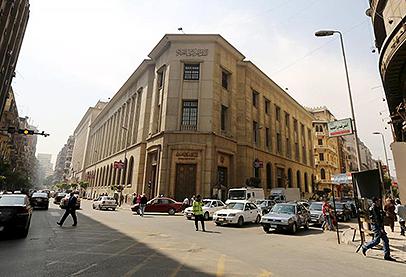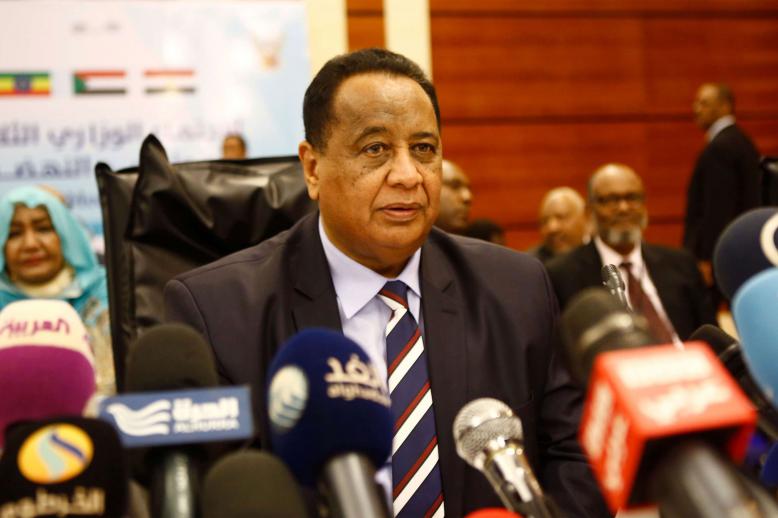Egypt’s Eurobond succeeds but risks remain

International investors’ enthusiasm for Egypt’s latest Eurobond issuance is a positive indication of the health of Egypt’s economy and signals confidence in the country’s prospects, economists said.
However, economists warned that Egypt’s monetary policymakers’ strategy to borrow to either prop up foreign currency reserves at the central bank or to repay immediate debts contains inherent risks.
“The national borrowing craze is dangerous because it increases pressures on the general budget and deprives basic sectors of the economy of important investments for years,” said Alia el-Mahdi, an economics professor at Cairo University. “Instead of investing in the local economy, the monetary authorities will have to channel available funds for debt services.”
Cairo confirmed that it raised 2 billion euros ($2.5 billion) in a dual-tranche, euro-denominated bond sale. The bonds were issued with maturities of 8 and 12 years at interest rates of 4.75% and 5.625%, respectively.
International investors’ interest created an oversubscription of 7.5 billion euros ($9.3 billion) in orders, reflecting confidence in the ability of Cairo to repay debts and the promising prospects of the economy.
The investor interest can be traced to November 2016 when the Egyptian Ministry of Finance initiated reforms that included the flotation of the Egyptian pound, the slashing of fuel, water and electricity subsidies and the introduction of major tax and customs changes.
Although the reforms took a huge toll on commodity prices in the local market, which caused suffering for millions of Egyptians, officials said they were paying off and responsible for the latest positive indicators.
The unemployment rate in Egypt is less than 12% for the first time since 2011. In the first half of the 2017-18 fiscal year, the economic growth rate was 5.2%, compared to 3.7% in the corresponding half of the previous fiscal year.
A drop in the exchange rate of the Egyptian pound, a direct result of the 2016 currency flotation, has given Egyptian goods a strong edge in international markets, leading to a marked increase in exports. Imports are on the decline, a development, which, together with the rise in exports and improvements in the tourism sector, has seen a major improvement in foreign currency reserves at the Central Bank of Egypt.
The reserves totalled $42.6 billion at the end of March, the highest in two decades. The Finance Ministry said it would use money raised in the Eurobond sale to support foreign currency reserves.
Ismail Hassan, a former governor of the Central Bank of Egypt, confirmed that an increase in Egypt’s foreign currency reserve has boosted the country’s financial standing and economic rating and increased investor confidence.
“The flow of investments into the national treasury boosts our ability to honour our financial commitments,” Hassan said. “Egypt had never failed in honouring any of these commitments in the past.”
All these positives, however, come with a corresponding rise in foreign debts. Egypt’s debts reached $80.8 billion by the end of the first quarter of the 2017-18 fiscal year. Egypt used to specify one-third of its budget for debt services, an issue raised by Egyptian President Abdel Fattah al-Sisi every time he talks about the country’s budget and spending.
The bad news is that Egypt will have to specify potentially almost half of spending in future budgets for debt relief.
“When this happens, we will fail to specify the required amounts of investments to important sectors, such as the health and education sectors,” Mahdi said.
The $2.5 billion raised in the Eurobond issuance raise the amount of money Egypt received from bond sales in international markets in less than two months to more than $6 billion. Egypt raised $4 billion by selling dollar-denominated bonds in February.
Financial authorities hope that a gradual decline in interest rates will stimulate investments and production, which would reflect Egypt’s overall financial and economic conditions. The Central Bank of Egypt cut interest rates 100 basis points in March, the second reduction in two months.
Fakhri al-Fiqqi, a former adviser to the International Monetary Fund, said, instead of over-borrowing, Egypt’s economic planners should focus on investments. One of the things Egypt should do, he said, is to invest loans and borrowed funds in production projects that add value to the economy and improve economic conditions.
“We should not be borrowing in the first place,” Fiqqi said. “Instead of borrowing, we should focus on the attraction of investments that add value to the economy.”
Amr Emam is a Cairo-based journalist. He has contributed to the New York Times, San Francisco Chronicle and the UN news site IRIN.
This article was originally published in The Arab Weekly.




